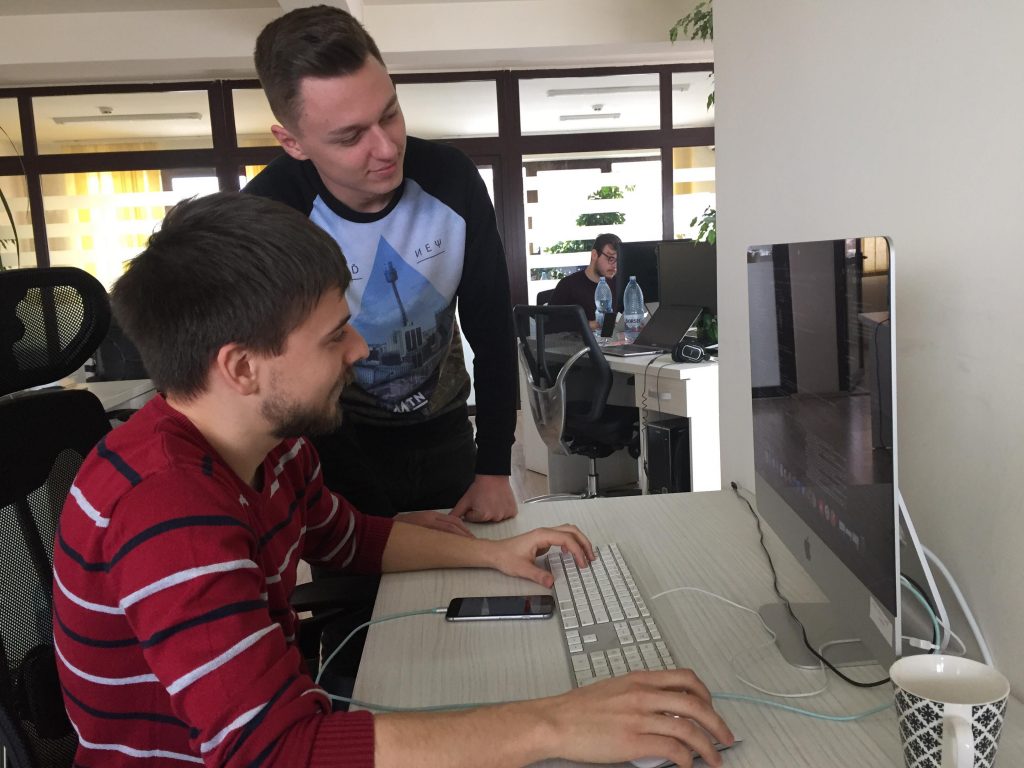Mentorship Programs in an IT Company
Is mentorship any good in an IT company? If yes, then how should it work? If not, is it a waste of time for the developer who invests time in teaching his colleague?
We want to tackle the option of mentorship in a company, and for this reason I invited David, an Android developer at Mobiversal with over one year of experience and Paul, one of our newest and youngest programming trainee.
In the last couple of months, David and Paul have been involved in a mentorship relationship. They discuss programming, obstacles, ways of writing code and much more. But let us hear it directly from them!
A: David and Paul thank you for joining me in this interview! It is for the first time when we tackle such a subject like mentoring. I confess, my idea came when I saw that you two were involved in this kind relationship and I wanted to give a brief feedback to our readers about it.
Paul, you are our newest and youngest employee. How did you imagine your first couple of months at Mobiversal? Did you expect having a mentor or did you think you would have to make it on your own?
P: When I first came here I thought that David was going to help me with my programming problems, but it’s not just David. Everyone is helping me when I’m stuck or when I ask for help. It’s better than I expected honestly.
A: David, time passes by so fast! You already have over one year of experience as a developer at Mobiversal. In what way do you think your particular experience will help Paul in his learning process? Is it better for someone new to benefit from a mentorship program or it is better to make it on his own? What do you think?
D: First of all, thank you for having me. I will start by saying that one year of experience is not much; but being one step ahead means that I already had those questions or that I already passed through the same problems with the help of my mentors of course. I know what I thought at that moment. That gives me the ability to help my “young student” to overcome the issue. You see, it depends what kind of help you give to your colleague. I see Paul as a colleague who needs some help to understand how to overcome the obstacles. That way I don’t resolve the problem for him but simply help him understand how to resolve it. The main advantage here is the increased learning time for new colleagues.
A: Paul, could you describe how this mentorship program works? Do you usually approach David when you encounter an obstacle or does he ask you first if you need any help?
P: I usually ask David when I have issues, but sometimes he is asking me if I’m doing well and if I need any help.
A: David, is there a difference in learning how to code within a mentorship program than all by yourself? How much time does a regular junior developer spends on learning by himself and how many hours does one gain by having a mentor?
D: In order to be good at programming, having a mentor is not a requirement. Two out of three developers are at least partly self-taught, so this is a huge number. You can’t say for sure how much time you gain by having a mentor. For example some trainees are self-driven, incredibly organized, and have some background in computer science while others are a lost cause even after a year of mentoring.
Having the wrong mentor is also a problem for some.
A great mentor could assess your current experience and identify areas that require improvement. They could point you to the right resources for complementary studying and design a program for memorizing new skills by putting them into practice.
Software development is a fairly new field and there isn’t much of a consensus as to what is the best way to learn programming or what are the best resources for beginners, let alone how to start learning and what are the best programming languages and so forth.
A: Ok, another one for you David. We know that you put effort into teaching Paul programming, but can you tell us if there is something you have learned from this relation? Did it benefit you in any way?
D: That is a good question. Being a good mentor require more than technical skills. It requires communications skills, leadership, management qualities, positive attitude and many others. I’m not saying that I am a good mentor, but this process helps me improve myself too. I admit I am still impatient sometimes, but I’m working on it. 🙂
A: Paul, could you describe some issues that you face in your work? Where does David come in? We are open for a technical answer as well.
P: I used to have issues using closures, UITableViews, delegates, but thanks to David and other colleagues, now I know how to use them.
A: This is a question for both of you. From your experience, do you think that mentorship could be the key that IT companies should apply with their employees? Not only in programming but in all areas.
P: Of course. It’s way easier to understand a new concept when someone is explaining you how it works than reading about it on the internet. And I think this method saves time.
D: Well yeah. Mentorship will summarize the expertise of someone to a tailored funnel of tips and strategies for you. Going through the basics is definitely required, too – but finding the right resources can save you years.
A: Guys, a sincere thank you for taking the time to talk to us about this particular and interesting experience! I am sure our readers will at least be encouraged to find a mentor and apply this learning style at their workplace.
P: You are welcome, Alex! Mentorship is a perfect way to start learning!
D: And I would add that there is a twofold way. Both of us have a win-win situation in this professional relationship.




